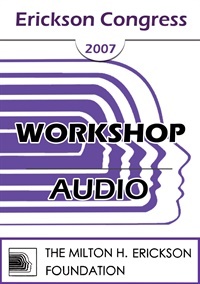IC07 Workshop 30 - Forensic Frontiers - Alan Scheflin, JD
- Average Rating:
- Not yet rated
- Topic Areas:
- Workshops | Hypnosis | Law & Ethics
- Categories:
- Erickson Congress | Erickson Congress 2007
- Faculty:
- Alan Scheflin, JD
- Duration:
- 1:52:29
- Format:
- Audio Only
- Original Program Date:
- Dec 09, 2007
- License:
- Never Expires.
Description
Description:
Clinicians who practice hypnosis must be familiar with its legal and ethical boundaries. In recent years, courts have paid increasing attention to the clinical and forensic use of hypnosis. Many lawyers have targeted hypnosis as what they call an “experimental and dangerous” type of treatment. We will discuss how therapists may simultaneously protect the legal rights of their patients, and may protect themselves from lawsuits. In addressing current clinical concerns, we will examine the rich and colorful history of hypnosis as it relates to law.
Educational Objectives:
- To describe the five areas where law and hypnosis intersect.
- To describe a risk management plan that will enable clinicians to use hypnosis competently, ethically and within the boundaries of law.
*Sessions may be edited for content and to preserve confidentiality*
Credits
Faculty

Alan Scheflin, JD Related Seminars and Products
Alan Scheflin, JD, is Professor of Law at Santa Clara University, School of Law. The current Chair of the Law and Mental Disability Section of the Association of American Law Schools. Recipient of 12 awards from professional associations, including the American Psychiatric Association, the American Psychological Association, the Society for Clinical and Experimental Hypnosis, the American Society of Clinical Hypnosis, the International Society for the Study of Dissociation, and the American Family Foundation. He is the author of six books and 70 articles.


